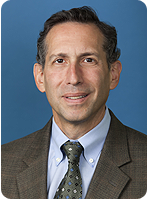Drugs that interfere with bile acid recycling can prevent several aspects of NASH (nonalcoholic steatohepatitis) in mice fed a high-fat diet, scientists from Emory University School of Medicine and Children’s Healthcare of Atlanta have shown.
The findings suggest that these drugs, known as ASBT inhibitors, could be a viable clinical strategy to address NASH, an increasingly common liver disease. The results were published in Science Translational Medicine on September 21, 2016.
“By targeting a process that takes place in the intestine, we can improve liver function and reduce insulin resistance in a mouse model of NASH,” says senior author Saul Karpen, MD, PhD. “We can even get fat levels in the liver down to what we see in mice fed a regular diet. These are promising results that need additional confirmation in human clinical trials.”
Karpen is Raymond F. Schinazi distinguished professor of pediatrics at Emory University School of Medicine and chief of the Division of Pediatric Gastroenterology, Hepatology and Nutrition at Children’s Healthcare of Atlanta. He and Paul Dawson, PhD, Emory professor of pediatrics, jointly run a lab that investigates the role of bile acids in liver disease.

Saul Karpen, MD, PhD
Many people in developed countries have non-alcoholic fatty liver disease, an accumulation of fat in the liver that is linked to diet and obesity. Fatty liver disease confers an elevated risk of type II diabetes and heart disease. NASH is a more severe inflammation of the liver that can progress to cirrhosis, and is a rising indication for liver transplant. Besides diet and exercise, there are no medical treatments for NASH, which affects an estimated 2 to 5 percent of Americans. Read more




